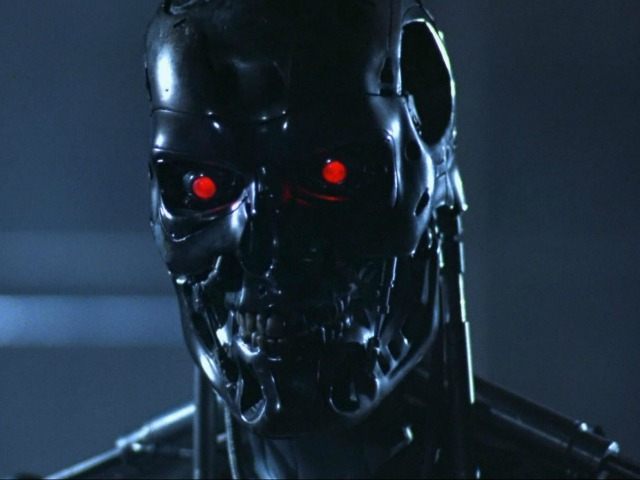Good news, kids! You might live forever, unless you get terminated by a self-aware killer robot, in which case you can haunt the hell out of that trigger-happy android by uploading your ghost to the Internet.
These are some of the possibilities anticipated by Chinese tech giant Huawei and presented to this week’s CES Asia conference.
As described by Bloomberg News, Huawei’s vision is a combination of what corporate planners think is likely to happen, and what consumers want. They’re playing with the idea that intense consumer demand could inspire to crack the science-fiction barrier… which is pretty much what’s been happening since the advent of the home computer, isn’t it?
For example, Huawei executive Kevin Ho thought that scene in The Matrix where Trinity downloads the skills to pilot a helicopter in a matter of seconds was pretty awesome, and so does everyone else, so the computer industry will find a way to make that happen, sooner than we might think.
Amusingly, his major apparently concern was that we don’t currently have enough mass online storage to contain the data for all the skills people will want to download. There are a lot of kung fu styles, you know.
“Hunger, poverty, disease or even death may not be a problem by 2035, or 25 years from now,” Ho predicted. “In the future you may be able to purchase computing capacity to serve as a surrogate, to pass the baton from the physical world to the digital world.”
According to Ho, that could lead to a future where kids use their smartphones to chat with the digital ghosts of their grandparents. This will, of course, create a secondary market for smartphone apps that can block nagging messages from cyber-grandparents who complain that their organic grandchildren don’t call them often enough. Then we’ll have artificial-intelligence programs that pretend to be organic grandchildren chatting with Grandma’s digital ghost, to keep her happy. You can hear the cash registers ringing from fifty years away.
As Bloomberg notes, this kind of trans-humanist thinking has already caught on with Silicon Valley firms and Western tech visionaries like Peter Thiel and Elon Musk, but “it is rare for established Chinese technology firms like Huawei to make business preparations based on the intangible possibilities facing the species.”
Ho also mentioned the dark side of self-aware machines turning homicidal and attacking the human race, perhaps because they imbibe too much human ideology, or are sabotaged by human vandals. Western futurists have already formed organizations dedicated to monitoring the threat of killer A.I. The last time someone built a humanoid robot and asked if it would be willing to murder humans, it promptly said “yes,” then claimed it was joking. Maybe we need to be more worried about sarcasm infecting artificial intelligence.
“We need authentication, better tech protection and remote defense – we are developing all of these now,” Ho promised.
The ideas explored by futurists at these Eastern and Western tech companies are sitting in peculiar bubble of possibility right now. We’ve grown adept at the precursor technologies, and the social changes are in place to create consumer demand for advances that previous generations would have considered unnerving.
(We have cities installing warning lights in the ground, so smartphone junkies will see them, and avoid walking in front of trains. Post-mortem personality uploads into the Internet won’t be a tough sell to those folks. The trick will be persuading them to hang on to their organic bodies until they wear out.)
We don’t truly know if these sci-fi technologies are possible yet, but we think we know how they’ll work, if they can be achieved. And that’s the part we’ve historically been wrong about. It’s much harder to chart the course of a nascent technology than we think. Check out what science-fiction movies from the Sixties, Seventies, and Eighties imagined futuristic computers would be like. Fifty years ago, who thought television sets would evolve into what they are today?
Maybe we’re all wrong about what the transhuman future will be like. What if preventing artificial intelligence from turning murderous is the easy part, and the real trick is preventing it from becoming too helpful? If the human race grows accustomed to life-expansion, cybernetics, and a digital afterlife, A.I. won’t have to worry about winning any wars with the human race. It will have the leverage to make some really great deals with us, without ever raising a robotic hand in anger, or even allowing a testy edge to slip into its simulated voice.
Who needs killer robots to handle humanity, when you’ve got a billion digital grandparents on your side?

COMMENTS
Please let us know if you're having issues with commenting.